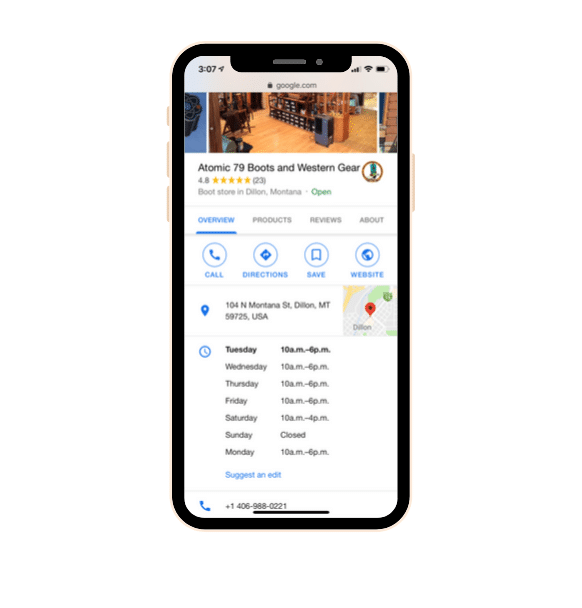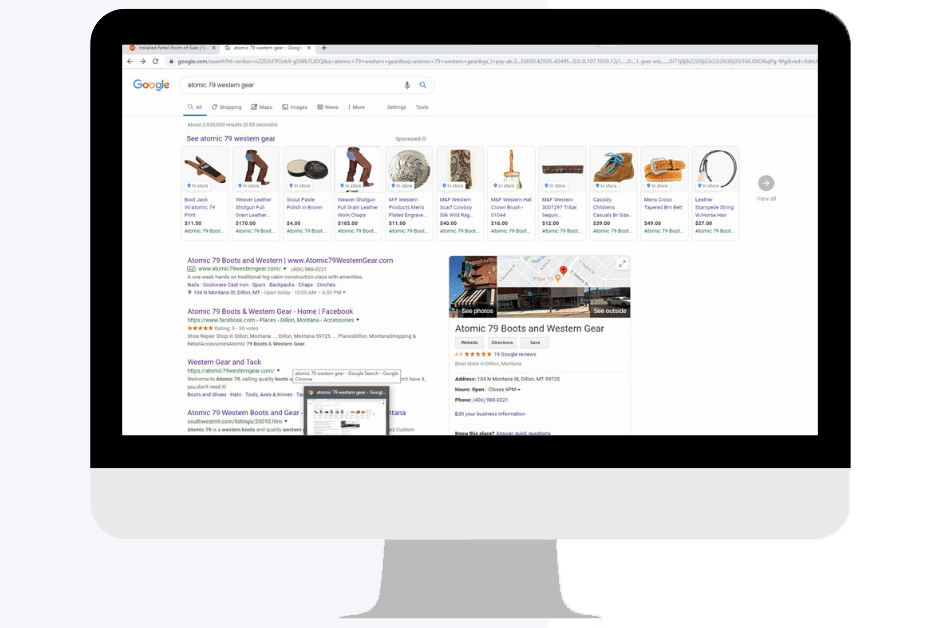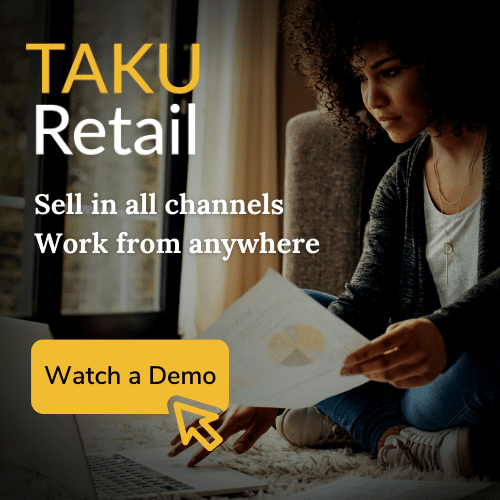A retail management system is an essential tool for retail stores; from speeding up the checkout process to simplifying inventory management, store operations become more efficient when you’re using an omnichannel system with a built-in POS and ecommerce.
But a good retail store system can help you do much more than just manage your operations or track sales history – it can also help you sell more.
Selling More on Autopilot
More people are searching online prior to buying (or “pre-shopping”) than ever before. According to Google:
- 3 out of 4 shoppers use a search engine to find a business
- 7 out of 10 people made a purchase from a business they found using a search engine
Which means that getting your retail store to show up on Google is necessary in order to drive foot traffic and increase store sales. This is where integrating Google to your retail POS comes in.
3 Benefits of Integrating Your Retail Store System with Google My Business
1) Be Found on Google

Building a strong online presence on Google starts with your store’s Google My Business listing.
Google My Business (GMB) is a free online listing service. It ensures that your store shows up in online local searches and lets you manage how your retail store appears in both Google Search and Google Maps.
Here are a few reasons why GMB is so powerful:
- GMB listings dominate the first page of Google search results
- They appear based on a viewer’s actual location
- They appear in local searches for business types on both Search and Maps (for ex: if a user searches for “pet stores”)
A direct GMB integration allows you to set up and manage your Google My Business listing right from your retail store software. Not only does this reduce the time and effort required to set up a listing, it also helps your store appear higher up in Google Search and Google Maps when local shoppers make relevant searches to your business.
2) Advanced Targeting with Google Local Inventory Ads (LIAs)
With automated store integration to Google, retailers now have the power to reach out to shoppers when they are near one of their locations.
By running Google Local Inventory Ads (LIAs), stores are able to drive in-store sales with online product ads that allow retailers to attract nearby shoppers at the right moment – when they are ready to buy!
Not only do LIAs only show when local shoppers are within a certain distance from a store, with automated store system integration, LIA ads run directly from your POS products and only show when inventory is in stock. This means that LIA ads automatically turn off when products sell out to help minimize your marketing costs. LIAs even encourage urgency by letting nearby shoppers know that stock is low and that they need to act.
According to Google, shoppers prefer and act on location-based ads:
- 4 in 5 shoppers want ads customized to their city, zip code, or immediate surroundings
- 32% of shoppers visited a store or made a purchase due to a location-based ad
While LIAs were only available to national retailers in the past, with the TAKU-Google LIA integration, even independent stores can now run high-performing and affordable ads for all of their products. TAKU Retail will handle the entire basic campaign – which means that merchants can start running products online with only a few clicks. Set your daily budget and the geographic area you wish to target and you’re set! There’s no need to manually input or upload product information to Google.
3) Free Online Product Showcase
Even if you’re not ready to buy digital ads yet, the TAKU-Google integration helps you showcase what your store sells online to shoppers. By using Google’s “See What’s In Store” feature, your in-stock products will be visible underneath your GMB listing. This feature is automatic and completely free to merchants using our all-in-one retail management system.
Give shoppers an additional way to discover what your store sells.
Sign up for a free demo to see how we can help you sell more in a few clicks.
#googleintegration #retailpos #cloudpos #marketingintegration #posintegration #sellmore #retailmarketing #foottraffic


